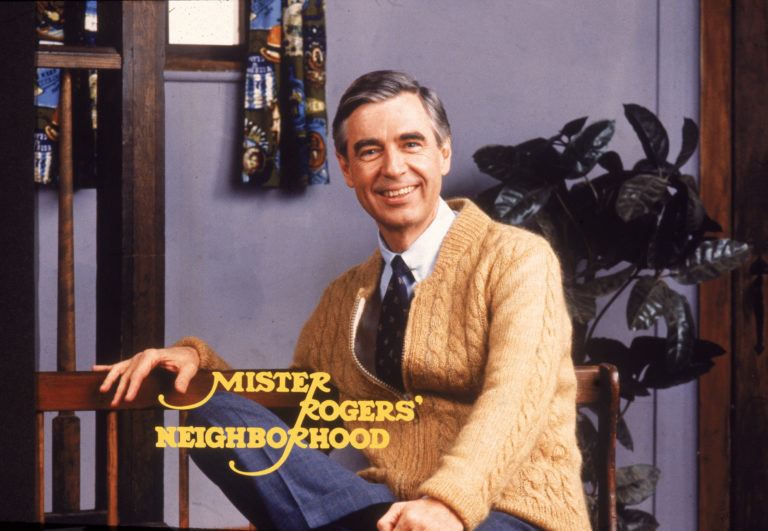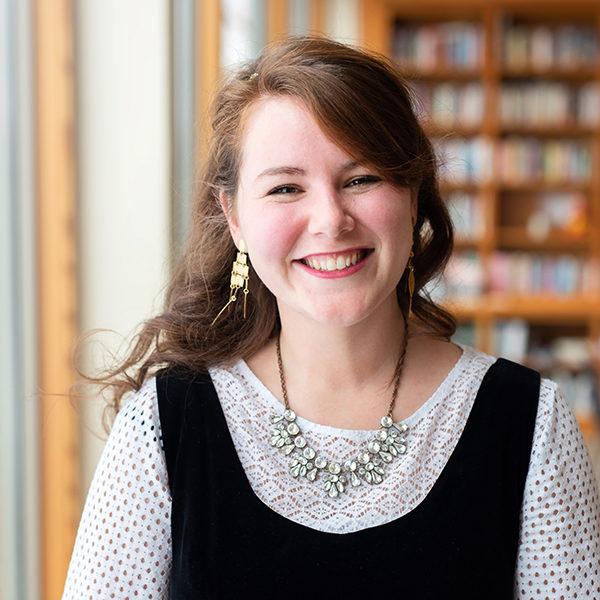
Portrait of American educator and television personality Fred Rogers (1928 - 2003) of the television series 'Mister Rogers' Neighborhood,' circa 1980s. (Photo by PBS Television/Courtesy of Getty Images) Image by PBS Television.
Remembering Mister Rogers’ Unconditional Community
It’s hard to think of someone so beloved as American educator and television personality Fred Rogers (1928–2003). From 1968 to 2001 he hosted the children’s television series Mister Rogers’ Neighborhood. He was a lifelong advocate for the needs of children, even bringing his signature mix of clarity and compassion to the United States Senate when it was needed.
When he won a Lifetime Achievement Award at the Emmys in 1997 there was nary a dry eye in the audience. Tom Junod captured it best in his profile for Esquire:
“Once upon a time, a man named Fred Rogers decided that he wanted to live in heaven. Heaven is the place where good people go when they die, but this man, Fred Rogers, didn’t want to go to heaven; he wanted to live in heaven, here, now, in this world, and so one day, when he was talking about all the people he had loved in this life, he looked at me and said, ‘The connections we make in the course of a life — maybe that’s what heaven is, Tom. We make so many connections here on earth. Look at us — I’ve just met you, but I’m investing in who you are and who you will be, and I can’t help it.'”
On the anniversary of his death, my colleague Lily Percy and I sat down to write about Mr. Rogers and what he meant to us. Instead we reminisced about his unconditional love, the community he created, and the gentle way we learned these things from a quiet man in a reliable sweater:
Lily: What do you think about when you think of Mr. Rogers?
Mariah: Well, he was the first example of what life could be like.
Lily: He was a part of a community.
Mariah: I remember watching him going to visit the sewage plant or the place where they make light bulbs, and you would learn about it but you would also meet the people who were working there. So you got to know the people, you got to know your community. You got the sense that your community mattered because he really saw people, as they were.
I wish I knew people like Mr. Rogers. Or that there were more Mr. Rogers in the world. Or that we were more open to being like him.
You know, it reminded me of what B.J. Novak read last night. Do you know what I’m talking about? The monologue of the robot:
“You meet a finite number of people in your life. It feels to you like it’s infinite, but it’s not. I think it’s the biggest thing I can see that you can’t. Because your brain doesn’t work the way mine works, with all these calculations and everything. You think you meet an infinite number of taxi drivers, but you don’t, it’s probably not even a thousand, in your whole life. Or doctors or nurses — do you get what I’m trying to say?”
Mr. Rogers showed you that sense of the infinite, and at the same time, how special each person is, because we are finite. You will only meet a finite number of people in your lifetime, and what will you do with that?
OK, your turn. What did Mr. Rogers mean to you?
Lily: Well, he taught me English. When we first came to this country, I didn’t know English. It was the late 80s and he was on TV. He spoke slowly enough that my mom and I would watch and learn English together.
He signified someone who was always on my side. I watched him and felt loved. I felt hugged by him. He felt like a family member. You know, the way my mom always talked about God — as a loving father, someone who made you feel loved and belonging — I always thought of Mr. Rogers. And I’m not saying Mr. Rogers is God. (laughter)
You know there’s kind of a backlash now about feeling special. I didn’t have parents that told me I was special every day. And he told me that. And I really needed it. He realized that not everyone grew up in families where that was said. He was that person for the kids that didn’t have that.There was something about how everything started the same. He was reliable. When you’re a kid and things are unstable, having someone that was reliable — you know, he always changed the sweaters. That was so important to me.
Mariah: I think he knew what people needed and what kids needed. I don’t really buy that argument that we’ve got a “specialness problem.” Mr. Rogers was telling kids they were special in the 70s when my Mom was watching too. They needed to hear it then. And we still need to hear it. Because there’s so much in the world that’s telling us that we’re not special, we’re not worth it, we’re not enough. He really understood what it meant to be human, and to be human is to be seen and heard.
Lily: The way he looked at children, people, he saw them — in the biggest sense of that word. The thing that I’ve always taken the most from him, what was that song?
Mariah: Oh I know what you’re talking about, “I like you”…
Lily: “It’s You I Like”
Mariah: He’s talking about unconditional love.
Lily: And having that person in your life who is on your side, is just there for you. The time you spent watching him felt important. He wanted to be there with you. Having him there, he made me feel important.
Mariah: People talk about heroes and people they aspire to be like. He’s someone I always think of. I just love this quote of his:
“I’d like to give you all an invisible gift. A gift of a silent minute to think about those who have helped you become who you are today. Some of them may be here right now. Some may be far away. Some, like my astronomy professor, may even be in Heaven. But wherever they are, if they’ve loved you and encouraged you and wanted what was best in life for you, they’re right inside yourself. And I feel that you deserve quiet time on this special occasion to devote some thought to them. So let’s just take a minute in honor of those who have cared about us all along the way. One silent minute.
Whomever you’ve been thinking about, imagine how grateful they must be that during your silent times you remember how important they are to you. It’s not the honors and the prizes and the fancy outsides of life which ultimately nourish our souls. It’s the knowing that we can be trusted, that we never have to fear the truth, that the bedrock of our lives from which we make our choices is very good stuff.”
And he was an ordained Presbyterian minister. I always forget that.
Lily: This was his church. We were his parishioners. Think about all the lives he touched, and the impact he had. It’s incredible.

